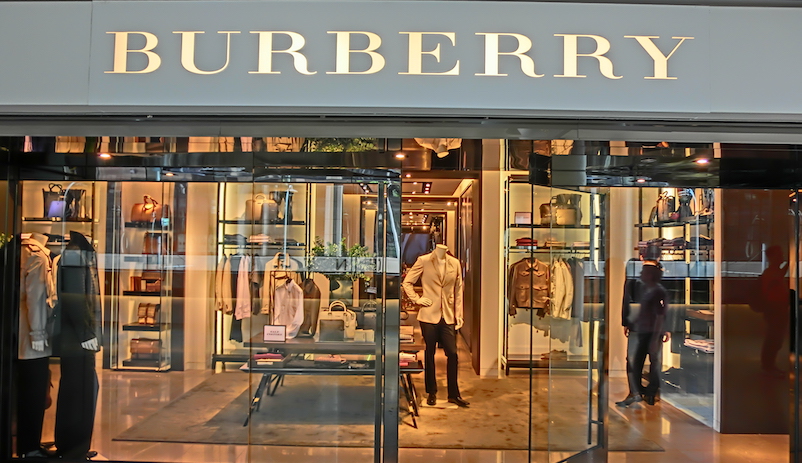Monday 18 May
– US National Association of Housebuilders (NAHB)/Wells Fargo housing market index
AJ Bell investment director Russ Mould notes April’s reading collapsed to 32 from 70 in March, the lowest reading since June 2012.
–Softbank expected to post a record 1.35trn yen operating loss in its annual results
-Chinese search engine Baidu releases quarterly results
Tuesday 19 May
-Imperial Brands H1 results
Incoming boss Stefan Bomhard, who takes up his post on 1 July, has got his hands full following a year in which the tobacco giant has dished out two profit warnings, ousted its chief executive and chairman and scrapped its 10% dividend growth policy per annum.
Despite Imperial stating that Covid-19 has not had “a material impact on the group’s performance” for the six months to March 2020, group net sales for the full year are expected to come in at zero, while revenue growth is expected to be in the low single digits, Mould noted.
Analysts will be looking to see if Imperial can reduce its net debt, which stood at £1.7bn at the end of last September, to free up cash for investments and dividends.
For the full year analysts are predicting a slight reduction in the dividend to around 202p a share (FY19: 206.6p), which would be “a big shock” for investors, Mould said, and mark the first year Imperial has not increased its annual payment since it was spun-out of conglomerate Hanson in 1996.
Without the cut Imperial would have an implied dividend yield of 13%, the third highest in the FTSE 100, Mould added.
-UK employment and wage growth
The unemployment figures covering the three months to the end of March will reflect the effects of the lockdown imposed on 23 March. Mould notes at the end of February unemployment stood at 4% and the employment rate was 76.6%, the highest figure since records began in 1971.
-German Zew indicator of economic confidence
“April showed a stunning recovery to 28.2 from -49.5, helped by a steady drop in the number of new daily Covid-19 cases from a peak of 6,294 on 28 March,” said Mould. “That even stands above the 21.1 mean score since records began in 1991.”
-US new housing permits and new starts data
-DCC full year results
-American retail chains Walmart and Home Depot report
Wednesday 20 May
-Full year results from Experian, Severn Trent, Marks & Spencer and Reit Great Portland Estates
The Share Centre continues to recommend Experian as a ‘buy’.
“Clues from January’s trading update remained positive however investors will be interested to see how the company has performed in the eye of the storm,” the stockbroker said. “With the company benefitting from solid revenue growth, strong cash-flows, margins and better diversification after it reduced its reliance on banks, investors will be quietly confident.”
-Compass H1 results
-UK inflation figures
Mould notes prices rose 1.5% in March due to falls in clothing prices and fuel. With oil prices falling further in April, and turning briefly negative, the headline figure could fall further, he said, but added food buying could have had an upward effect.
-Weekly US oil inventory data
Thursday 21 May
–Trading statements from quality assurance and safety tester Intertek and car retailer Inchape
-Full year results from Tate & Lyle, Homeserve and Pets at Home
-Aviva Q1 figures
The Share Centre said the virus crisis will have major implications for the FTSE 100 life insurer and investment firm, including lower fee income due to a hit to assets under management.
“The group already cut back on dividends early on during this crisis and now investors will expect to hear whether this was a temporary cut or a permanent reset to a lower level,” it said.
-US weekly unemployment insurance claims data
– Philadelphia Fed manufacturing business outlook
Friday 22 May
-Burberry full year results
The luxury retailer, beloved by heavyweight investor Nick Train, has endured a torrid time since the coronavirus outbreak, with retail sales plunging by 40% to 50% year-on-year in February before stores shut completely in March, according to its last trading update.
Burberry’s own consensus shows total group sales of £2.6bn against £2.7bn a year ago with like-for-like retail sales down 5% and total sales 4% lower on a constant currency basis. Operating profit is expected to tumble to £337m, 23% lower than £438m last year.
The luxury retailer has made no public comment about its dividend thus far, said Mould, though it appears to have temporarily shelved its £150m share buyback programme.
“Analysts have pencilled in full-year payment of 33.84p, down from 42.5p last year. That implies a reduced second-half distribution of 22.54p, down from 31.5p, and would end a ten-year run of annual dividend growth at the company,” Mould said.
Its shares have lost a third of their value since Covid took hold of markets on 20 February but Train has stated the British house could experience a boost from “a burst of hedonism” on the other side of the crisis.
-UK retail sales
-Japanese inflation
-United Utilities full year results
Mould said the North West’s water provider has targeted an increased dividend distribution of 42.6p for the full year, up from last year’s 41.28p. If it follows through it will have a dividend yield of 4.7%, making it the 39th biggest payer in the FTSE 100.
-Spectris trading statement










